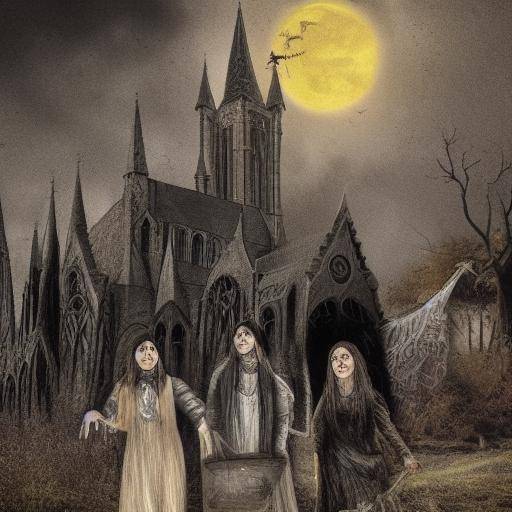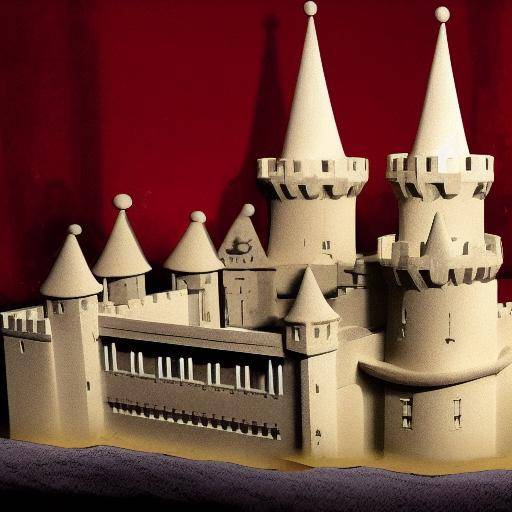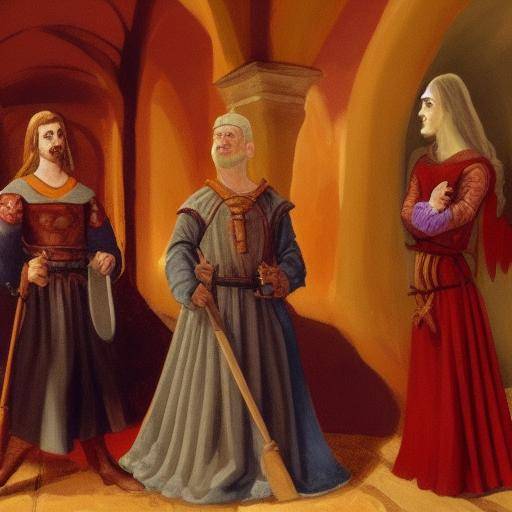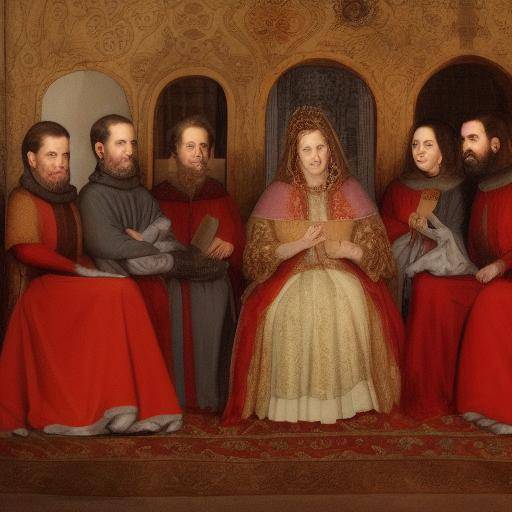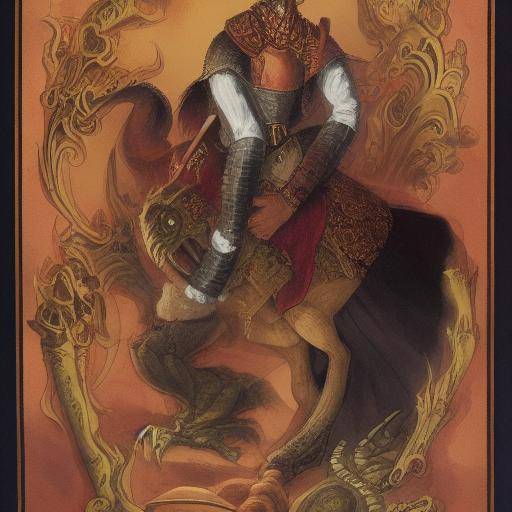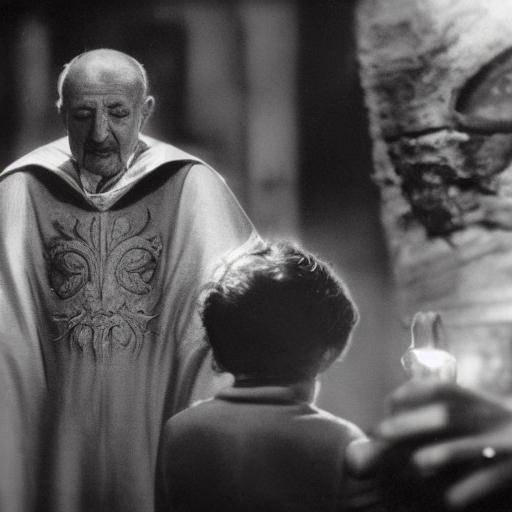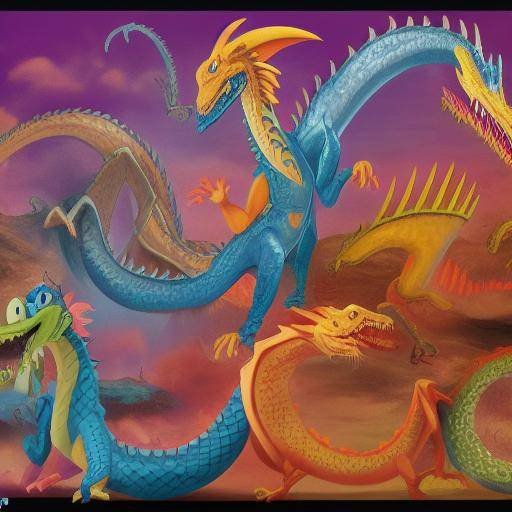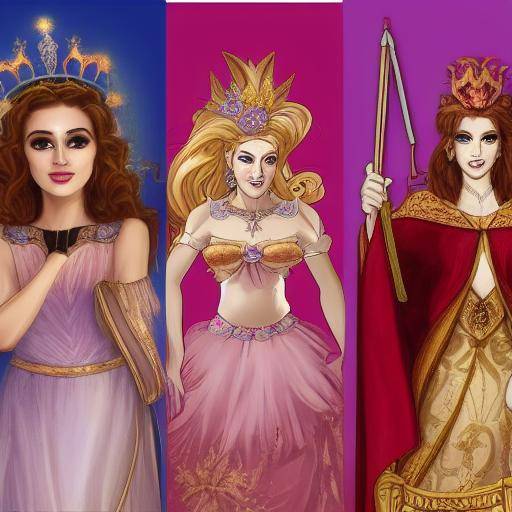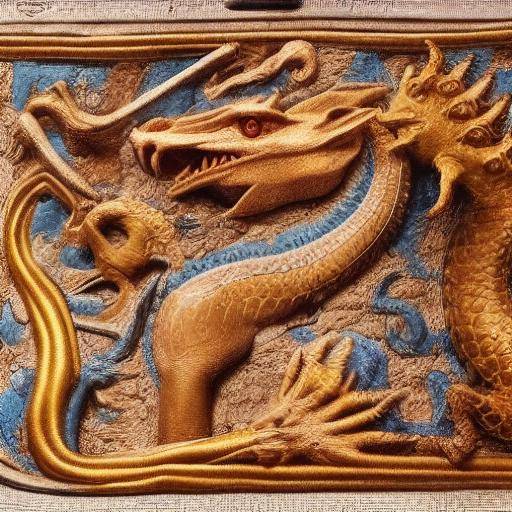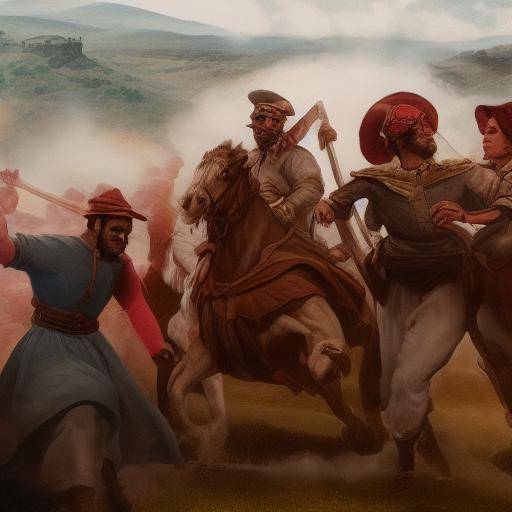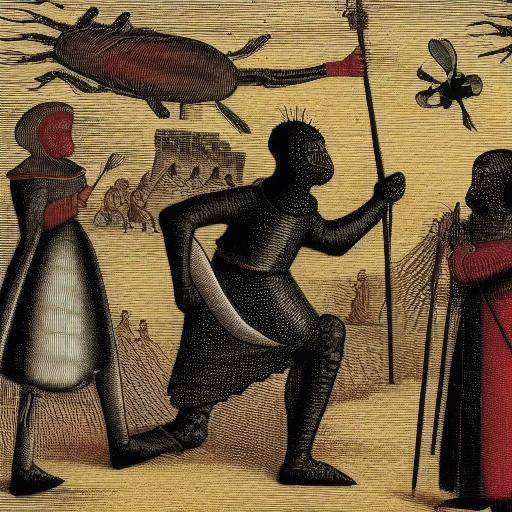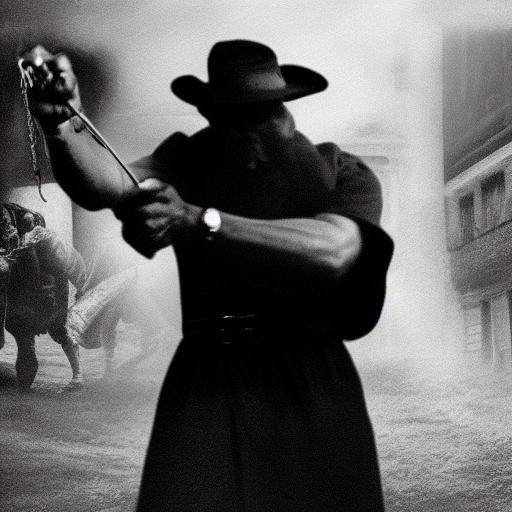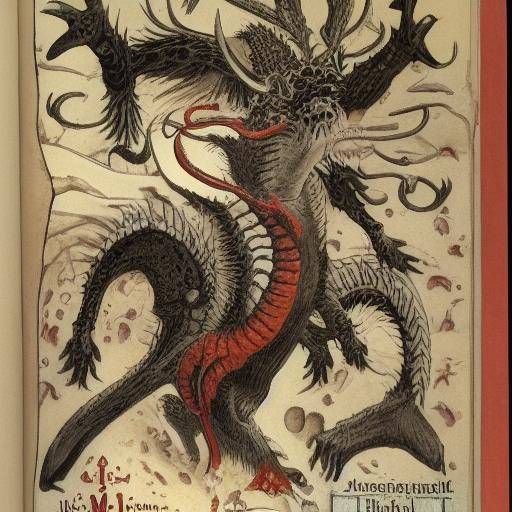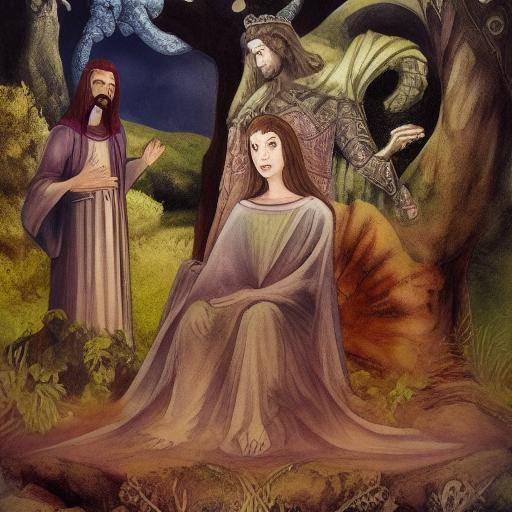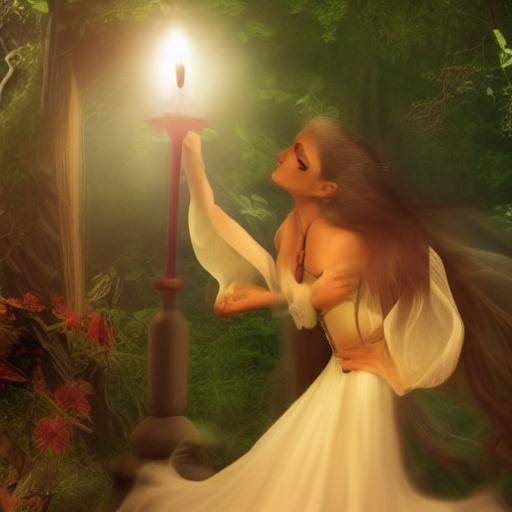
Introduction
History is full of magical and mysterious tales that have captured the imagination of people throughout the centuries. In the Middle Ages, the belief in witchcraft, the practice of sorcery and medieval legends flourished, creating a fascinating panorama of magic and power. In this article, we will explore the stories of witches, sorcerers and legends that have endured over time, unraveling their origins, their impact on medieval society and their legacy to this day. Dive into a journey through time and discover the mysteries that envelop these magical figures.
History and Background
The history of witchcraft and sorcery dates back to the dawn of human civilization. In ancient Europe, pagan traditions intertwined with Christian beliefs, leading to the notion of magic as a force both evil and benign. During the Middle Ages, the perception of witchcraft experienced significant changes, from being an accepted practice to being condemned as a heresy.
During this period, the famous witch hunts arose, in which thousands of people, mostly women, were accused of practising witchcraft and condemned to the bonfire. The Inquisition, an institution of the Catholic Church, played a crucial role in the pursuit of supposed witches and sorcerers, marking a grim chapter in the history of humanity.
Beyond persecution, the figure of the sorcerer or magician also gained relevance. In medieval society, the sorcerers were seen as possessors of a magical knowledge that could influence the fate of the people. Their skills were feared and respected, which made them enigmatic figures in the society of the time.
Analysis in Deep
The stories of witches and sorcerers have endured in literature and folklore over the centuries. From the historic witches of Salem to the mythical magicians of King Arthur's court, these figures have left an indelible mark on popular culture. His stories have served as a source of inspiration for countless works of art, literature and cinema, perpetuating his legacy in the collective imagination.
When examining medieval legends, archetypes and recurring motives are revealed that reflect the anxieties and aspirations of the society of the time. The stories of witches who practice black magic and sorcerers who exercise their power with wisdom serve as metaphors for the moral and existential conflicts facing the inhabitants of the Middle Ages.
Comprehensive review
Witchcraft and sorcery have also been the subject of academic study and contemporary debate. Scholars have analysed these practices from various perspectives, unraveling their cultural, social and psychological implications. The witchcraft, far from being a mere superstition, has been seen as an expression of resistance to established norms and as a manifestation of empirical knowledge about the properties of plants and herbs, used for medicinal purposes. On the other hand, the sorcerer or magician has been studied as a universal archetype that represents the power of the individual to transform reality.
Comparative analysis
By comparing the figures of witches and sorcerers, fundamental similarities and differences are revealed. While witchcraft has been associated with femininity and has been used to demonize women who challenged social norms, the image of the sorcerer has been linked to male knowledge and power. However, both figures share attributes of magic and power that awaken the astonishment and admiration of those who seek to understand the mysteries of the universe.
Practical Tips and Accessible Tips
Although witchcraft and sorcery have been relegated to the realm of fantasy and fiction today, they continue to generate a deep interest in many people. For those who wish to explore these themes, it is important to approach with an open and respectful mind towards the traditions and beliefs of other cultures.
- Explore literature and folklore related to witchcraft and sorcerers to better understand their importance in different eras and cultures.
- Investigate the practices of contemporary communities that continue to maintain traditions related to magic and spirituality to broaden your perspective.
- Participates in cultural events, conferences or workshops that address the issue of witchcraft and sorcery in an informed and respectful manner.
Industry Perspectives and Expert Reviews
Despite historical stigmatization, there is currently a resurgence of interest in witchcraft and sorcery, partly promoted by contemporary movements of spirituality and female empowerment. This renewed approach seeks to recover and preserve the ancestral traditions related to magic and nature, offering an alternative view to conventional spiritual practices.
Some scholars and experts have advocated for a more comprehensive and respectful approach to witchcraft and sorcery, recognizing their importance as legitimate cultural and spiritual expressions. These approaches seek to demystify ancestral practices associated with magic and sorcery, showing their relevance in the contemporary context.
Case Studies and Real Life Applications
Throughout history, witchcraft and sorcery practices have had a significant impact on society and culture. From the creation of emblematic literary works to the influence on women's empowerment movements, these mythical figures have left an indelible mark on human civilization.
The phenomenon of witchcraft and sorcery has also been manifested in various forms over the centuries, from the practices of healing and healing of indigenous communities to the emergence of contemporary spiritual movements. These cases illustrate the continuing relevance and adaptability of magical and spiritual beliefs in different cultural contexts.
Future Trends and Predictions
As society evolves, we are likely to continue to see a greater interest in the traditions of witchcraft and sorcery, especially in relation to the resurgence of movements that revalue the spiritual and the magical. This renewed interest could lead to greater openness and understanding of these ancestral practices, fostering dialogue and knowledge-sharing among different communities and cultures.
In conclusion, the history of witches, sorcerers and medieval legends invites us to immerse ourselves in a world of mystery and ancestral wisdom. Through the exploration of these iconic figures, we can learn more about the complexity of the human condition and the diversity of beliefs that have enriched our history. Whether as symbols of resistance, sources of artistic inspiration or expressions of the connection between the human and the divine, the stories of witches and sorcerers continue to captivate and challenge our understanding of the world.
Frequently asked questions
What is the difference between witches and sorcerers?
The main difference lies in gender representation: witches are usually associated with the feminine, while the sorcerers are related to the masculine. In addition, the witches have been historically stigmatized and persecuted, while the sorcerers have been seen with a mixture of fear and respect for their magical knowledge.
What are some of the witchcraft and sorcery practices in the Middle Ages?
In the Middle Ages, witchcraft and sorcery practices included herbs and potions with supposed healing or magic powers to perform rituals to influence the fate of people. These practices were often considered heresies by the church and persecuted as such.
How have medieval legends influenced the current popular culture?
Medieval legends, including those about witches and sorcerers, have been a source of inspiration for countless works of art, literature and cinema. The archetypes and motives present in these legends have permeated the current popular culture, influencing the way magic figures are portrayed in contemporary fiction and fantasy.
Is there a connection between witchcraft and sorcery practices of the Middle Ages and contemporary beliefs?
Yes, there has been a resurgence of interest in the traditions of witchcraft and sorcery that has led to contemporary movements of spirituality and female empowerment. Some communities continue to maintain traditions related to magic and spirituality, demonstrating the pervival and adaptability of these ancestral knowledge.
What is the legacy of witchcraft and sorcery in today's society?
The legacy of witchcraft and sorcery is manifested in the influence that these mythical figures have had in forms of art, in movements of feminine claim and in the contemporary resurgence of related spiritual practices. In addition, these traditions invite us to reflect on the diversity of beliefs that enrich our history and how humanity has approached the mystery and connection with the divine over time.
How to address witchcraft and sorcery issues with respect and sensitivity?
It is crucial to approach these themes with an open and respectful mind towards the traditions and beliefs of other cultures. Listening to the communities that keep these traditions, learning about their history and cultural context, and avoiding the misappropriation of their practices are important steps to address these issues with sensitivity and respect.
Concluding, the stories of witches, sorcerers and medieval legends transport us to a world of mystery and ancestral wisdom. Through the exploration of these iconic figures, we can learn more about the complexity of the human condition and the diversity of beliefs that have enriched our history. Whether as symbols of resistance, sources of artistic inspiration or expressions of the connection between the human and the divine, the stories of witches and sorcerers continue to captivate and challenge our understanding of the world.

